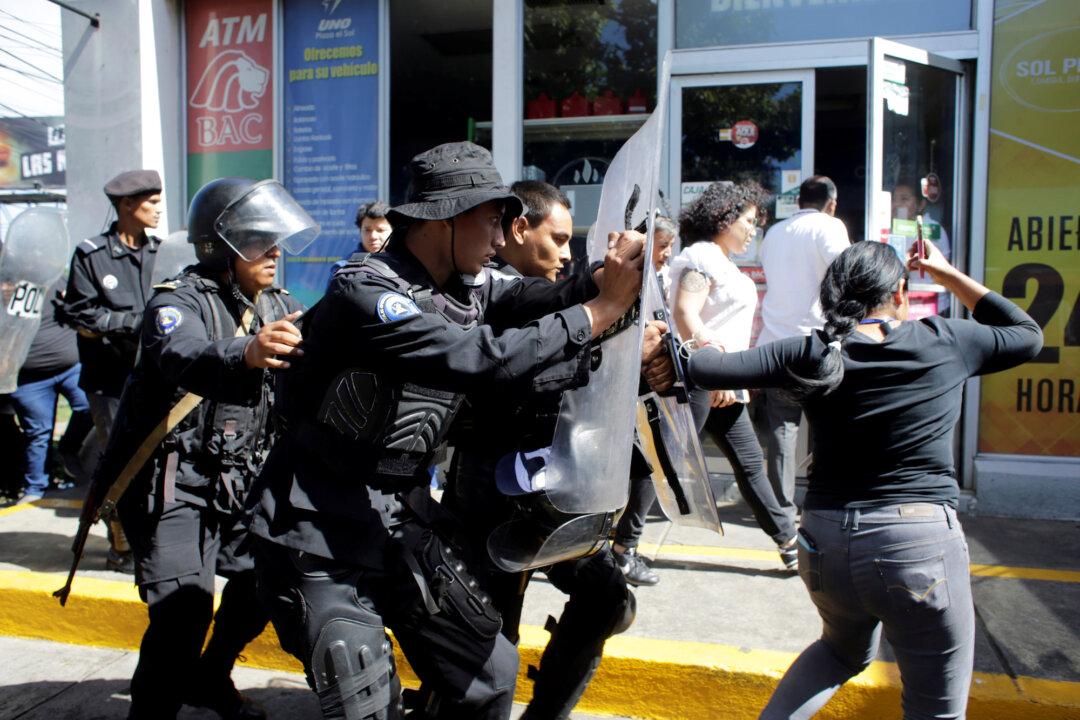MANAGUA—Nicaraguan police on Dec. 15 beat at least seven journalists with batons, including one of the country’s best-known editors, in an escalating crackdown on members of the free press.
The beatings come in the wake of waves of protests against Nicaragua’s President Daniel Ortega, who heads the country’s leftist regime.





